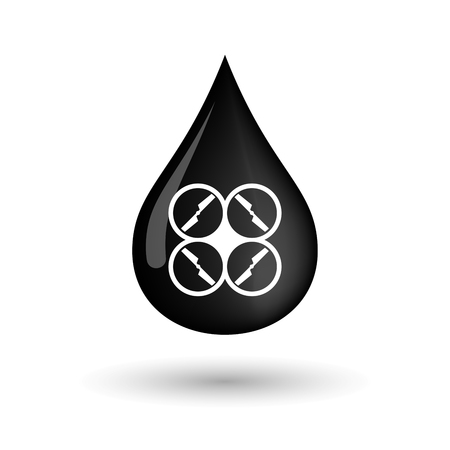Wednesday, October 26, 2016
The price of crude oil has dropped dramatically over the course of the last decade. Back in 2008, a barrel of oil cost more than $150, but in recent years, the cost has plummeted, and has been between $40 and $50 per barrel for the past year.
 As a result, the oil industry has been working
to become more efficient in its operations, working to be less wasteful when it comes to drilling for oil, installing pipelines, monitoring oil fields,
and doing all of the other things that need to be done as part of the production process. By placing a new emphasis on operational efficiency, oil
companies are working to be more profitable and maintain and grow operations in a depressed marketplace.
As a result, the oil industry has been working
to become more efficient in its operations, working to be less wasteful when it comes to drilling for oil, installing pipelines, monitoring oil fields,
and doing all of the other things that need to be done as part of the production process. By placing a new emphasis on operational efficiency, oil
companies are working to be more profitable and maintain and grow operations in a depressed marketplace.
These companies are using all different kinds of techniques to help their cause, as CNBC reports in a recent article. For example, the large French oil company Total is now using drones instead of 12-man teams to inspect its oil fields. These drones are able to carry out inspections in just two days, a process that used to take human employees two weeks. Using drones also costs about 10 percent of what it would to pay people to do the same job.
Here in the U.S., Shell has created a new kind of pipe called a steel lazy wave riser that can absorb the motion of the water in the Gulf of Mexico and make oil production easier. Chevron is employing robotic devices to clean out and inspect the inside of their pipelines, which has helped it produce more oil on a daily basis, while other companies like ExxonMobil and Statoil are also taking the data that they collect to improve their operations and find ways to cut down on the ordering inefficiencies that resulted in excess materials being purchased during pipelines and oil processing facility construction projects.
In the years to come, oil companies are going to remain fixated on finding even more solutions to their efficiency problems. By finding ways to be more efficient, the oil industry is finding ways to work smarter, not harder, and control costs more effectively. For example, Statoil was able to cut development costs by 20 percent on a project in the North Sea, saving more than $12 billion. Using technology and new construction methods to maximize profits and cut costs is a sign of the industry adapting to thrive in the new realities of the oil market.
Lowrance Machine Shop is a family-owned company that has served customers in the oil industry as well as many other industries since 1964. We aim to build strong bonds with our customers, and have developed a reputation for our rapid, high-quality products and services. To learn more, call us at 281-449-6524 today.
TAGGED AS:
- efficiency in the oil industry
